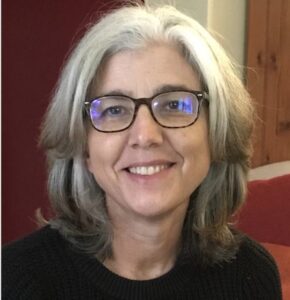Menu
Heather Brookes
Stellenbosch University

Heather Brookes is Chair of the Department of General Linguistics at the University of Stellenbosch and Director of the Child Language Development node of the South African Center for Digital Language Resources. She served as Vice-President of the International Society of Gesture Studies from 2002 to 2005. Since 1993, she has been tracking multimodal language practices among multilingual township youth. Some of her key publications on youth include: (2021) (co-edited volume with Rajend Mesthrie & Ellen Hurst-Harosh) Youth Language Practices and Urban Language Contact in Africa. Cambridge: CUP; (2021) (co-authored with Idah Makukule) The changing status of English in the linguistic and identity practices of Black male township youth in South Africa. World Englishes 40(1): 52-62; (2018) The language of youth in Africa.
She also works on language acquisition and gestural development in South African languages and leads the South African MacArthur-Bates Communicative Development Inventory project (SA-CDI.org). This project was shortlisted for the SA-UK Newton Prize of 2020.
Talk Information:
Rethinking Youth Language Practices in South Africa: An Interactional Sociocultural Perspective
February 10, 2023 | 9:00 AM
Studies of youth ‘languages’ in Africa often treat these phenomena as distinct languages because they appear to have names and are sometimes unintelligible to outsiders. Although these so-called ‘languages’ primarily occur among males, the gendered nature of these phenomena has largely been ignored. Rather emphasis has been placed on documenting their unique lexical and grammatical features. This talk argues for an alternative view of ‘African Youth Languages’ based on ethnographic and ecological approaches that link structural and discursive analyses of spontaneous communicative interactions with immediate situational and local social dynamics and then the broader sociocultural context of the speech community in which these practices occur. I demonstrate that youth ‘language’ is interactive performative practices that constitute a performative register made up of a set of discursive strategies that draw on different linguistic resources in the quest for originality as part of male sociality during a particular life-stage.